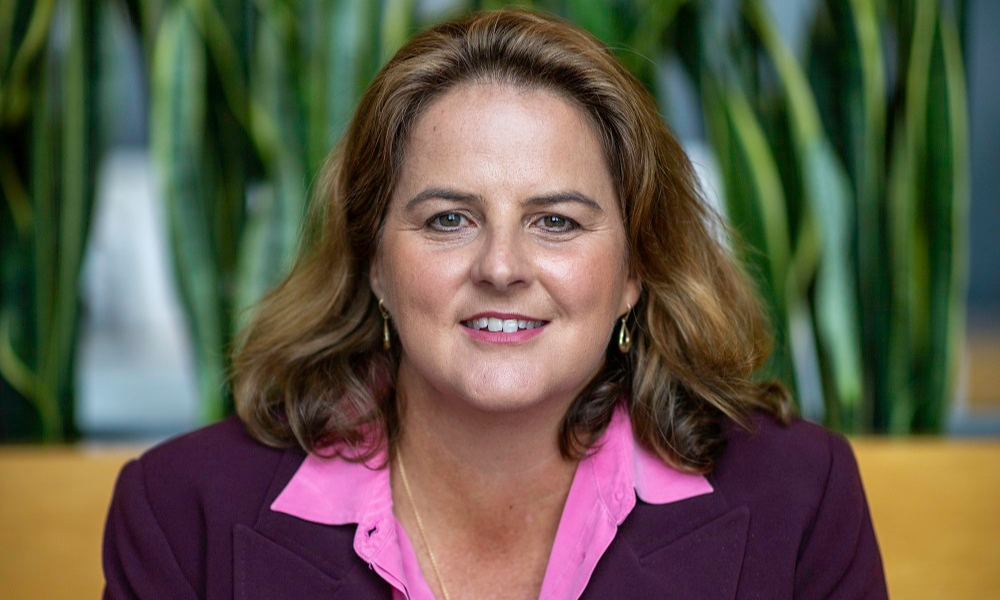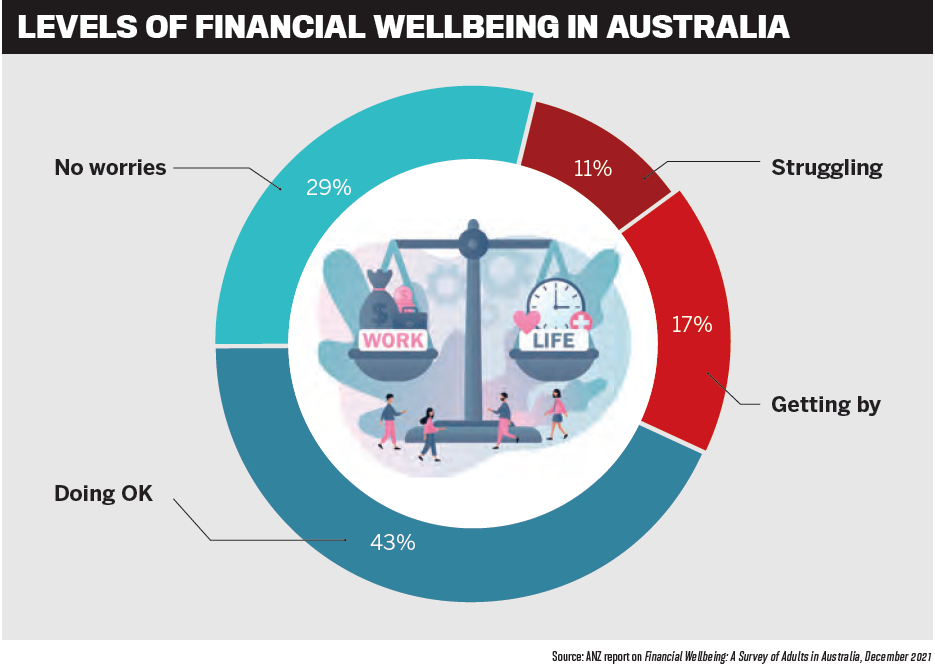As interest rates and inflation continue to rise, people need to know how to manage their money. ANZ's Natalie Smith explains how the bank is helping customers achieve financial wellbeing

ANZ describes financial wellbeing as a measure of a person’s confidence with money, and financial literacy.
Paying bills and meeting mortgage repayments, as well as handling unexpected financial expenses, is especially important during these tough economic times.
The latest ANZ-Roy Morgan Consumer Confidence measure shows that consumer confidence is at its lowest level since 2020 and continues to fall, particularly among mortgage holders.
Natalie Smith, general manager of ANZ Retail Broker, says some customers with fixed rate terms are starting to roll off their loans, and there may be borrowers who haven’t experienced rate increases before.
“As a result, more home loan customers may be reflecting on their financial wellbeing and looking for additional support, to ensure that they have the right product for their situation and property goals,” Smith says.
“Financial wellbeing is not about how wealthy we are, how much we earn compared to someone else, or how much we know about the economy. While these factors have a positive influence, financial wellbeing is about how comfortable and positive we feel about our money, today and for the future.”
Smith says that in practical terms financial wellbeing “is about what we do with the money we have – how easily we can pay bills, make loan repayments or cope with financial setbacks, like an unexpected expense or a fall in income”.
“It also includes a sense of confidence that we will have enough money to enjoy life, into retirement and beyond.”
ANZ has been exploring the financial attitudes and behaviours of Australian adults for almost 20 years. However, the most recent ANZ survey of adult financial wellbeing, released in December 2021, showed that only 29% of Australians had ‘no worries’ when it came to their financial wellbeing.
Smith says that although there are socio-economic factors that can influence a person’s financial wellbeing, such as health, unemployment, earning potential and the stage they are at in their life journey, the ability to seek support from family, friends or the broader community is also important.
People with ‘no worries’ were also more likely to seek information, guidance or support with their finances from formal or professional sources in the last year, with approximately twice as many doing so as those with low financial wellbeing, according to the 2021 survey.
Australians with higher financial wellbeing reported being more comfortable talking to their main bank or having money conversations with people in their close circle of family and friends than those with lower financial wellbeing scores.
People with low financial wellbeing were more likely to feel they had no support from family, friends and the broader community.
“Taking steps to strengthen your financial wellbeing is a lot easier with the right tools, guidance and resources to support you,” says Smith. “If Australians believe that they cannot access this support from their family, friends or their local community, it’s not surprising that many people turn to a professional source for guidance.
“During times of uncertainty, brokers are well placed to support borrowers with specialist knowledge and guidance when it comes to buying, upgrading or refinancing a home. It’s possible that the first conversation that these borrowers have about their financial situation may be with a broker.”
Smith says ANZ is here to help.
“We have several resources to assist brokers and their customers looking to improve their financial resilience, feel good about the future, and make financial decisions with greater confidence.”
The resources are not just for ANZ-accredited brokers, or existing ANZ customers; they’re free and available to everyone, no matter who they bank with, says Smith.
ANZ’s Financial Wellbeing Program is designed to help people become a “Financial Wellbeing” – or a better one – in six easy steps.
“This program provides simple, practical and educational information to plan a budget, reduce expenses, manage spending and save for a rainy day,” Smith says.
The program includes the ANZ Financial Wellbeing Calculator, which can analyse a person’s attitude to money, and their confidence in the future, and allow users to assess their current situation.
The ANZ Financial Wellbeing Challenge also provides weekly challenges, coaching, tips and tools to help people build new habits and do more with their money, regardless of how much they have.
Outside of the program, Smith says ANZ’s home loan repayment calculator allows borrowers to compare home loan scenarios and better understand changes to their home loan repayments.
“In addition, the ‘Manage your loan’ page on anz.com provides insights and tips to help get the most out of a home loan,” she says.
ANZ customers can also access personalised insights, such as their monthly ‘Spend Summary’ and ‘Your Money Report’, through the ANZ App.
“At ANZ, we want to help shape a world in which people and communities thrive,” Smith says.
“Supporting our customers to make the most of their money throughout their lives is critical to this, and each day we are working better together with our brokers to help Australians achieve their home loan goals.”
Valuing diversity
As well as supporting financial wellbeing, ANZ has a strong commitment to strength-ening diversity and inclusion within the bank and the wider financial services industry.
Established in 2018 and run in partner-ship with Notable Media, the ANZ Doyenne program is designed to raise the visibility of female brokers and drive a more balanced representation of voices in the industry.
The program connects participants with a network of like-minded women in the broking industry and provides them with a greater understanding of the media landscape, the skills to enhance their professional profile, and the opportunity to expand their network.
ANZ is also committed to supporting the LGBTQI+ community. The bank has its own LGBTQI+ network, ANZ Pride, and has been recognised as a leading employer for LGBTQI+ inclusion.
The major bank has been a strong supporter of the Sydney Gay and Lesbian Mardi Gras and QLife, which provides peer support and counselling for the LGBTQI+ community.
To promote gender balance and improve outcomes for all genders, ANZ also partners with industry bodies such as Chief Executive Women, the Diversity Council of Australia, and the MFAA’s Opportunities for Women.
For more information on the ANZ Financial Wellbeing Program and to access the resources referenced in this article, visit www.anz.com. au/personal/financial-wellbeing.




